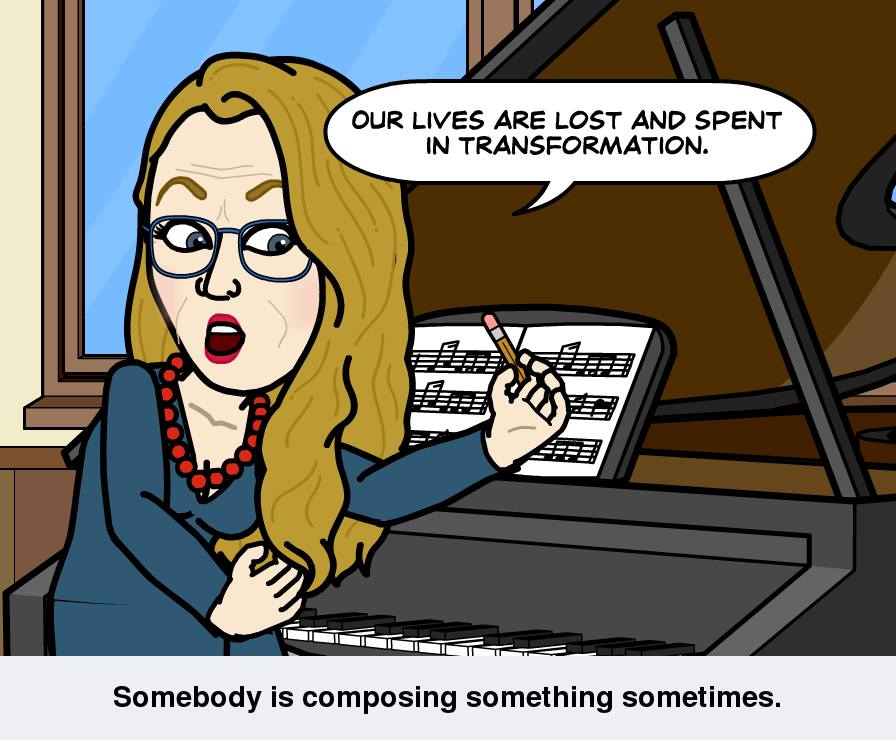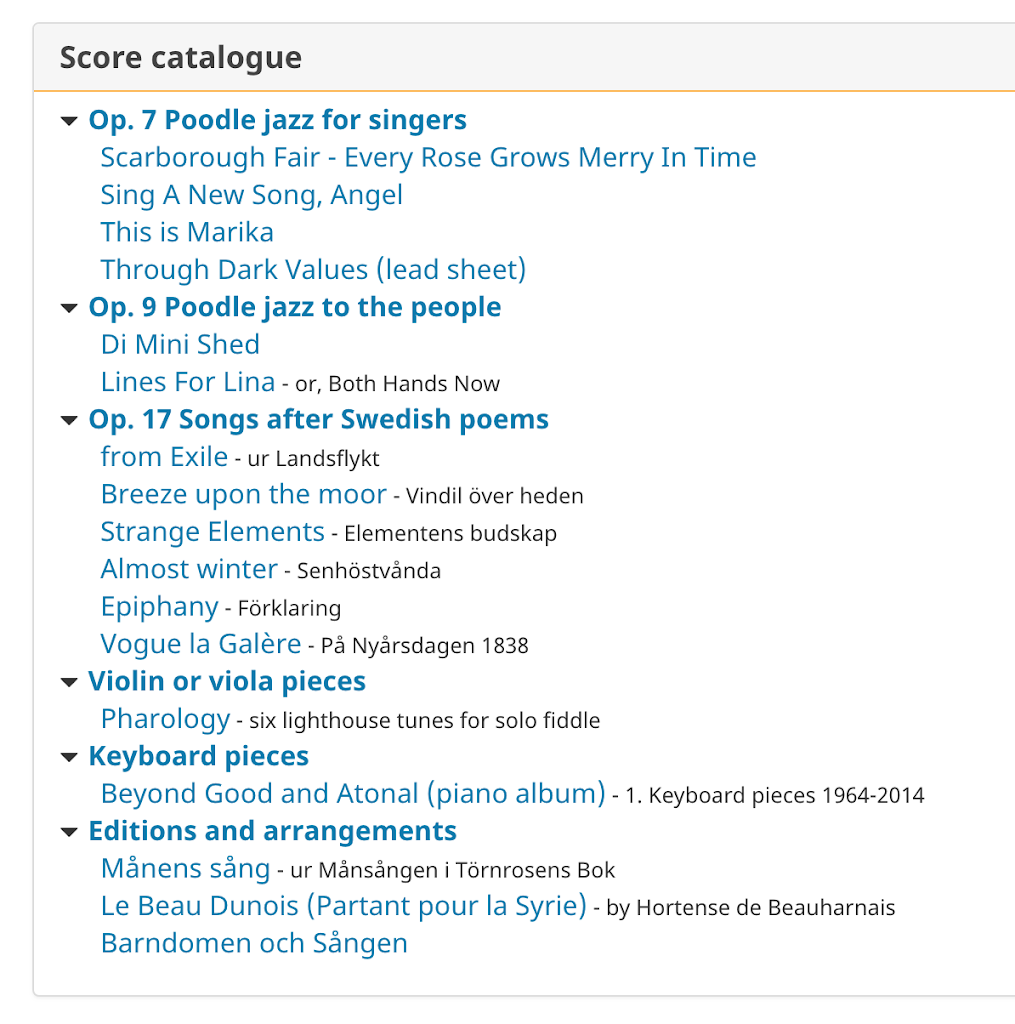

Maritune Art & Music Presentation (composer C.V.) page.
Facebook page /maritunemusic For updates about the artist and business entity Maritune Art & Music.
Bandcamp digital music store.
CD Baby digital music store.
Score Exchange web shopSheet music to purchase for the right to print out copies (from online, to your own printer) and/or download a copy of a pdf version.
Swirly Music web shop Sheet music to purchase to recieve professionally printed copies (mail order) or a downloaded copy of a pdf version.
LKR Sheet Music web shopBritish web shop where a couple of my songs are available.
Tracks at SoundCloud audio service Some demo files and recordings with examples of my music from the last two decades.
Youtube channel /maljharbourShort movies with new music, art videos, more or less traditional music videos, demo videos with sheet music viewing/listening, and other things.
Tracks at Alonetone audio serviceMostly examples of my musical experiments, raw material recordings and mixes/mashes from my contributions to the online events at the Sound-In collaboration group of composers and improvisers.
Instagram /maljharbourImages of small things, keyboard instruments, sheet music and a harbour.
Twitter /marituneMostly links to new posts elsewhere, seldom discussions, occasionally some few tweets and re-tweets on various topics.
maritune.comPersonal web domain and electronic mailbox address.
article from STM-OnlineEnglish translation of a contribution to a debate about the status of music history in Swedish musicology.
Blondel’s SongSummary of a paper in musicology, written in Swedish in 1996-97.
Beyond Good And Atonal (this blog) Writings and blog things in Swedish or English.
